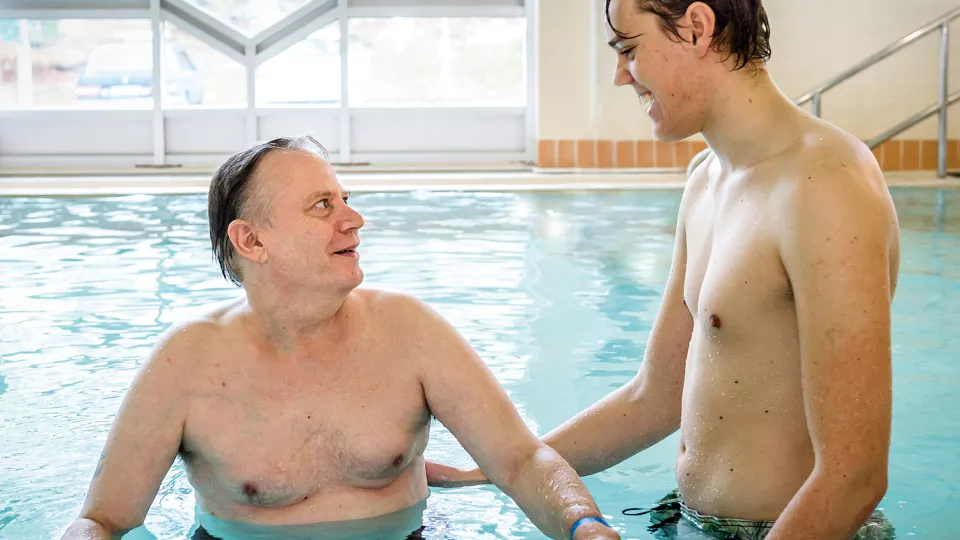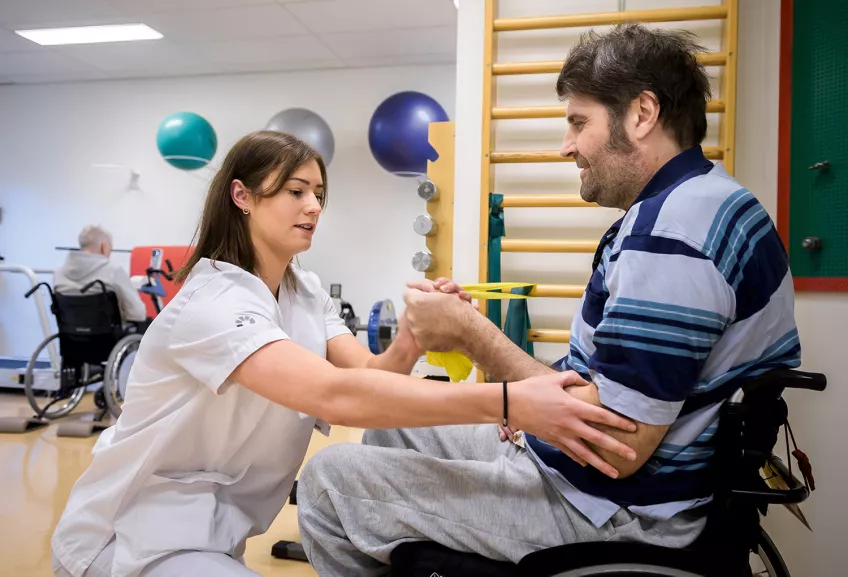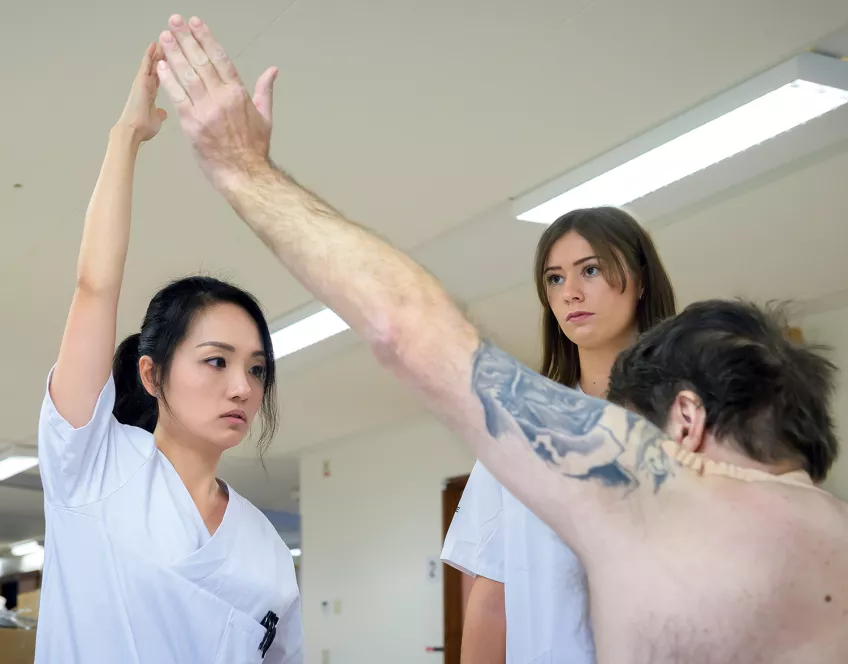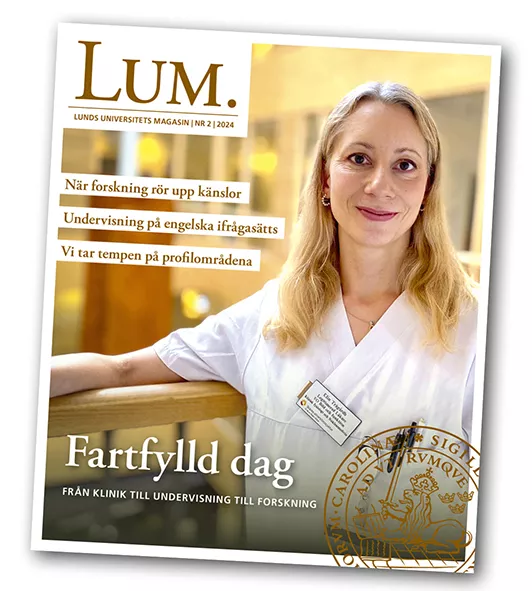Ronny Karlsson is one of 'his' patients during his studies and the aquatic exercise is one of several treatment measures. Albert Eriksson first became interested in the profession when he himself had problems with his knees and received treatment from a physiotherapist. He finds it stimulating to be able to help people with their health and contribute to their development. At the beginning of his studies, he mainly thought about working with sports injuries, however, now he has gained a broader understanding of what a physiotherapist can do and would consider working at a healthcare centre where there is a wide variation of patients.
Although it was nerve-wracking meeting patients at first, Albert Eriksson and Anna Hermann had both been looking forward to the clinical training. Despite the fact that they had practised on each other with their fellow students in the physiotherapy programme and simulated different injury scenarios in role-plays, it is entirely different to face real patients.
"It is different to take on the occupational role and be professional when you meet someone who may have a complicated multi-trauma", says Albert Eriksson.
They feel that they have received a lot of support from their supervisors and have had a positive response from their patients. The interaction with their patients is at the centre and it is important to be perceptive.
"Each person is unique and their needs vary. Some like to talk and others are more reserved and may have cognitive difficulties, making communication challenging. Most patients are very open and, as students, want us to learn as much as possible", says Anna Hermann.
Ann-Kristin Alkhed has been a supervisor for students at the brain injury rehabilitation unit since the beginning of the 2000s. She thinks it would be good to have a slightly longer period of clinical training as it takes time to adjust to the work. At the same time, she respects that the programme has a lot to cover. She feels the contact with students is positive and instructive even for the supervisors, who have to keep on their toes to be able to answer their questions. During the programme, students have the opportunity to take more and more responsibility for the patients and to run different group activities as well. This means that the supervisors can gradually take a step back.
Ann-Kristin Alkhed says that brain injury rehabilitation is real detective work– to discover who the patient was before the accident or illness and how the injury has affected the person.
"Working with rehabilitation is very stimulating, difficult, challenging and wonderful! It is great to be part of a team with the patient and to do your best in a difficult situation – it is amazing. It is possible to contribute a lot, even to the most seriously affected." Now it is half past ten and time for Anna Hermann to work on upper-body strength with Åke Andersson. He has been in hospital for a couple of weeks following a multi-trauma, which has put him in a wheelchair. But first the physiotherapist TszYuk Ho demonstrates how to stabilise his aching shoulder with kinesiology tape. As soon as the first taping is in place, there is a significant difference in Åke Andersson's mobility.
Next, the treatment continues and Anna Hermann instructs Åke Andersson on how he should train with the resistance band to increase arm strength. Supervisors are always nearby if they are needed or if any questions arise. Anna Hermann is positively surprised by how many physiotherapists there are at the hospital and the team spirit that they have.
"I learn a lot just by being here and seeing how the staff receive the patients in their specific situations."





